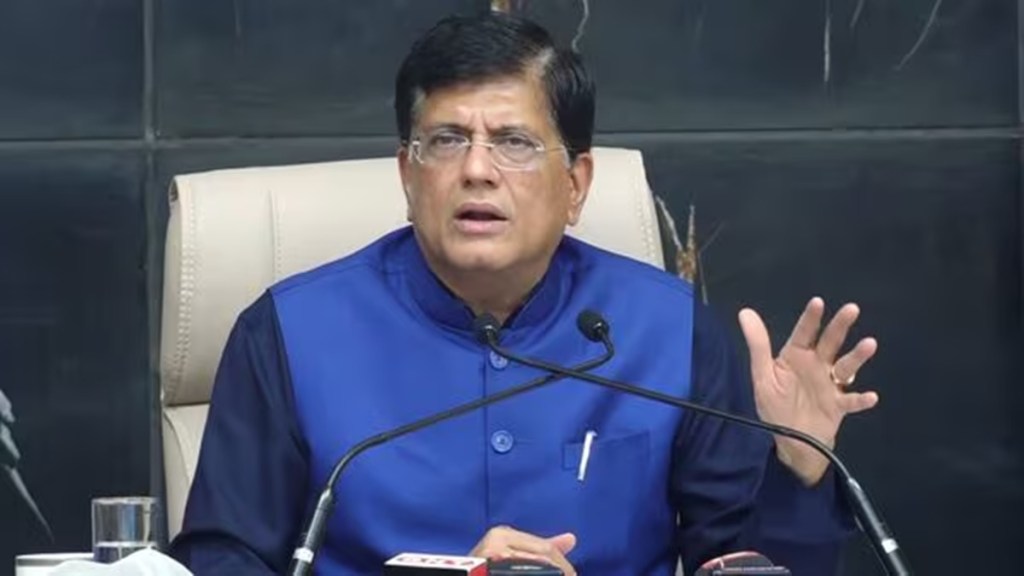India’s Commerce and Industry Minister Piyush Goyal is in the US this week for crucial discussions with US officials about advancing the Bilateral Trade Agreement (BTA), an issue that was initially addressed during Prime Minister Narendra Modi’s recent visit to the US. The two nations are aiming to double bilateral trade to $500 billion by 2030, a target that Goyal’s visit is expected to further strengthen. The first phase of the trade deal is anticipated to be finalized later this year.
According to sources speaking to FinancialExpress.com, Goyal is set to meet US Trade Representative Jamieson Greer and US Commerce Secretary Howard Lutnick. The primary agenda will focus on key issues such as tariffs and market access, two of the most pressing matters for India.
One of the major concerns for India is the potential impact of reciprocal tariffs that President Donald Trump has threatened to impose, especially on industries like automobiles, chemicals, and agriculture. Goyal has previously hinted that both countries could look into offering mutual concessions or duty reductions, as their economies are highly complementary. As Goyal had stated previously, “India is open to discussing tariff reductions on industrial goods like automobiles but is firm in its stance that agricultural tariffs should remain untouched in order to protect Indian farmers.”
These discussions are taking place against the backdrop of US President Trump’s plan to introduce reciprocal tariffs starting in April 2, 2025. Indian exporters in sectors like automobiles and agriculture have expressed concern over the potential financial impact. Analysts at Citi Research estimate that these tariffs could result in annual losses of approximately $7 billion for India.
The trade balance between the two countries currently favours India. In 2023, US-India trade in goods and services was valued at $190 billion, with India enjoying a trade surplus. Indian exports to the US amounted to $83.77 billion, while imports were valued at $40.12 billion.
Experts suggest that Goyal’s visit comes at a time when the US is looking for alternatives to Chinese imports, providing a potential opportunity for Indian exporters. As Ajay Sahai, Director General of the Federation of Indian Export Organizations (FIEO), noted, “With the US imposing higher tariffs on Chinese goods, American importers are seeking alternative suppliers. This shift opens avenues for Indian exporters, particularly in sectors such as electrical machinery, auto components, mobile phones, pharmaceuticals, chemicals, footwear, furniture, toys, and apparel. India’s ability to meet this demand will depend on its production capacity and competitiveness.”
Both sides are also expected to discuss non-tariff barriers and trade facilitation measures that could ease the movement of goods and services between the two countries. However, there are concerns about the potential long-term impact of these tariffs on India’s current account deficit. According to Lekha Chakraborty, Professor and Chair of NIPFP NET-Website Committee, “We will have to wait until April 2 to understand the specifics of the trade tariffs the US plans to impose on India. The retaliatory tariffs may widen India’s current account deficit. As long as we can finance this deficit through capital flows, it’s manageable. However, given the volatility of capital inflows, this solution is unlikely to be sustainable in the long term.”
Chakraborty goes on to describe the visit as a move in ‘economic diplomacy,’ emphasizing the importance of leveraging such diplomatic efforts to mitigate the impact of high tariffs and strengthen the trade relationship. “I look at this visit as ‘economic diplomacy,” she explained. “Minister Piyush Goyal’s visit to the US, especially on the eve of Trump’s retaliatory tariff imposition on India, can indeed be seen as a strategic move aimed at easing Indo-US tensions related to high tariffs. I hope his visit will likely seek to mitigate the impact of these tariffs and promote a more favourable trade environment between the two nations.”
Furthermore, Goyal’s visit is seen as timely given the ongoing tensions regarding the World Trade Organization (WTO) obligations. Former Ambassador to the WTO, Jayant Das Gupta, remarked, “This will lead to retaliatory action. Three countries Mexico, Canada, and China have already announced retaliatory measures. Previously, too, India had retaliated during Trump’s first tenure as president. Commerce Minister Goyal’s visit is very timely, as efforts are being made to address issues related to the WTO. Many of Trump’s actions are contrary to WTO obligations.”


